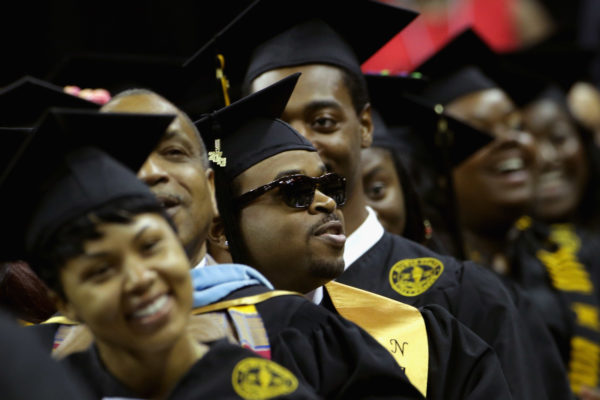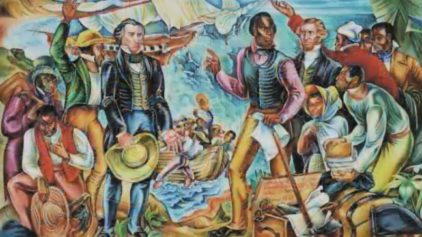In a unanimous vote, on March 15 the Maryland Senate passed a bill to provide $580 million to the state’s four historically Black colleges and universities.
Those institutions — Bowie State University, Coppin State University, the University of Maryland Eastern Shore, and Morgan State University — will receive the additional funding over the next 10 years, The Baltimore Sun reported. The state’s House of Delegates already passed the measure 129-2.

The legislation, aimed at ending a years-long lawsuit accusing the Maryland government of inequitable funding that harmed the viability of the state’s HBCUs, will now head to Republican Gov. Larry Hogan’s desk for signing. The measure’s overwhelming support in the Assembly means a Hogan veto easily could be overridden.
Democratic Sen. Obie Patterson lauded the measure as a “great, great compromise bill.”
“Certainly, there will be some who say we didn’t go far enough or we didn’t get as much as we could,” Patterson told the newspaper, adding that he had spoken with leadership at the four HBCUs. “They assured me that they were pleased with the progress we made.”
The funds are expected to help with a number of projects, including the expansion of scholarships and the creation of new academic programs at the colleges. The money would also aid in faculty recruitment, as well as marketing efforts.
Adrienne A. Jones, the state’s first Black House speaker, introduced the bill as a means for the state to settle a 13-year-old suit brought by the Coalition for Equity and Excellence in Maryland Higher Education in 2006. The HBCU advocacy group accused the state of “allowing well-funded academic programs at traditionally white universities to undermine similar ones” at the state’s HBCUs, according to a previous report by the Baltimore Sun.
A statement from the Lawyer’s Committee for Civil Rights Under Law, which is representing the Coalition, further explained: “The suit seeks equality between the state’s HBCUs and its traditionally white schools,” adding, “specifically, plaintiffs want the state to stop allowing traditionally white schools to duplicate programs at the HBCUs, the development of unique programs at the HBCUs, and funds for needed capital improvements.”
Jones addressed the case in a statement Monday, breathing a sigh of relief that the long-running battle had finally been brought to a close.
“The HBCU case has been an ongoing issue and underscored the marked inequity that exists in our higher education system,” Jones said. “We have taken the necessary action to eliminate the vestiges of program duplication and level the playing field for all students.”
The plaintiffs in the case had argued that traditionally white colleges in the state were copying academic programs offered by the Maryland HBCUs, making it harder for those schools to attract non-Black students.
Kristen Clarke, president of the Lawyers’ Committee for Civil Rights Under Law, lauded Sunday’s vote as “truly historic.”
“We applaud lawmakers for putting in place bipartisan legislation that can bring overdue relief for HBCUs in Maryland,” she said.


